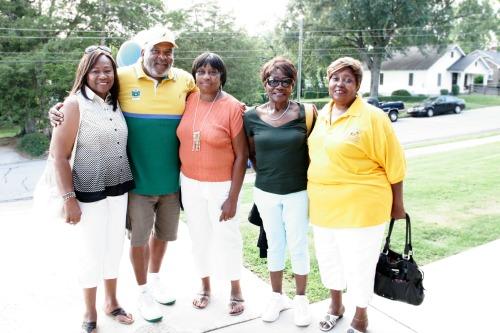As the population ages, many people are reaching older age having gone through one or more divorces. That’s particularly true for the generation known as the baby boomers, who hit adulthood in the 1960s and ‘70s when societal norms around marriage and women’s roles were changing drastically. Add to that, a more recent upward trend in so-called gray divorce, which is older couples divorcing after many years of marriage. While many studies have pointed out difficulties stemming from divorce for men and women but particularly for women, including financial challenges and diminished social support, many women in this study described how divorce was sexually empowering for them.
The study I conducted for my doctoral research was an exploration of the question of what contributes to sexual satisfaction as women age. It was a qualitative study, which included my interviewing 16 women aged 56 to 92, 14 of whom had experienced divorce at some point in their lives. From the stories of the women I interviewed, divorce emerged as a significant factor that often served as a springboard for sexual growth. For the research participants who had divorced, the dissolution of their marriages created opportunities for sexual exploration and pleasure that were sometimes missing in their marriages, whether they divorced at a young age or when they were older. As one might guess, the quality of marital sex was related to the way the divorce was perceived at the time and then subsequent sexual experiences. For example, if the marriage was very stressful or the sex was very unsatisfying, divorce especially provided an especially important opportunity to learn and experience sexual pleasure.
This study, which corroborated the findings of one larger book-length study on the topic entitled Deserving desire: Women’s stories of sexual evolution,found that after a period of disorientation, women often found divorce to be an impetus for sexual experimentation and learning about themselves. After recovering, none of the women said they would prefer not to have divorced in the long run. In fact, they reported feeling sexually empowered over time by their divorces. This empowerment grew from multiple roots. Sometimes, divorce helped the participants to challenge social norms. Sometimes it created freedom from childcare, from an abusive relationship, or a mixed orientation marriage. Most often, divorce created space for new relationship energy and sexual exploration, and, perhaps paradoxically, sometimes it created a sense of security that aided experimentation by making the end of relationships seem less scary and more workable.
Divorce changes people’s lives in profound ways. How these changes occur and the types of changes have received relatively little attention in research literature, especially the dimension of sexual expression. This study invites further consideration of the possibility that the quality of sex in marriage impacts the quality of sexual expression after divorce, and that many older women remember their divorces as part of a sexual revolution in their lives, whether the divorce was early or later in life.![]()
Kate Morrisssey Stahl, PhD, LCSW, CST is an assistant clinical professor of social work at UGA and an AASECT certified sex therapist. The full research article, entitled “Sex after Divorce: Older Women’s Reflections,” was co-authored with University of Georgia professors Jerry Gale, Denise Lewis, and Douglas Kleiber in the Journal of Gerontological Social Work.




